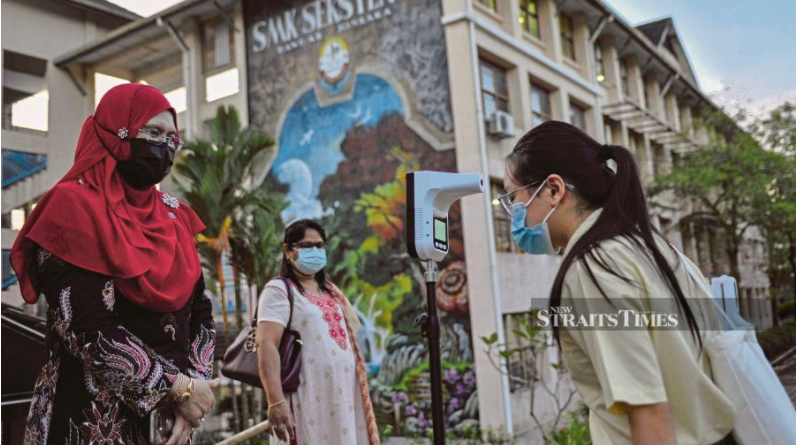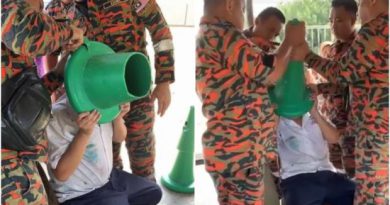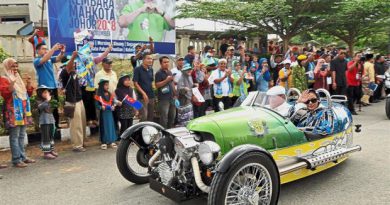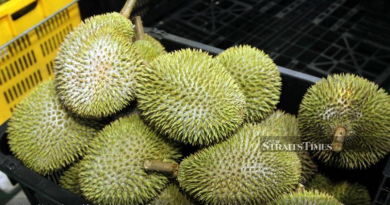‘Inoculate students taking exams’
KUALA LUMPUR: The government must not rush to reopen schools pending a decision on administering Covid-19 vaccines to adolescents, as the country is still battling a high number of new daily infections, said parent and teacher groups.
However, some were agreeable to the proposal to vaccinate the adolescents, with priority given to Sijil Pelajaran Malaysia (SPM) candidates on a voluntary basis.
National Parent-Teacher Association president Associate Professor Datuk Dr Mohamad Ali Hassan said students could be given the jabs before they set foot in schools.
He said this would protect them against Covid-19 and deadly variants like Delta, which is spreading in the community.
“Although older people have been vaccinated, they could still be a carrier and transmit the virus to unvaccinated children who then spread it to their classmates, potentially sparking a school cluster. This will lead to another temporary closure, further disrupting teaching and learning.
“It is crucial to take the necessary preventive measures, which include vaccination, especially when students are expected to resume face-to-face learning,” he told the New Straits Times.
The Education Ministry on July 17 announced that home-based teaching and learning would continue until Aug 31, and physical classes in schools would start in stages from Sept 1.
Health Minister Datuk Seri Dr Adham Baba earlier said while vaccinations for Sijil Tinggi Persekolahan Malaysia (STPM) students would start this month, a decision on SPM candidates was pending the latest data and studies from vaccine producers.
Studies have shown that teenagers aged 17 and below can develop myocarditis (inflammation of the heart) and pericarditis (inflammation of the tissue that forms the sac around the heart) after two doses of the Pfizer-BioNTech and Moderna mRNA vaccines.
Koay Joo Bee, an administrator of the Malaysia Primary School Parents’ Facebook group, which has 35,500 members, said a decision on vaccinating adolescents should be driven by data and science.
She said this also meant that the government should not rush into allowing students to return to schools.
“There is a risk of school clusters re-emerging. It is best to welcome SPM and STPM students first, with other students returning to schools when cases drop and many have been vaccinated.
“The authorities could also seek parental approval (for vaccination), as an opt-in approach might be more successful.”
Malaysia is not the only country in two minds about whether to vaccinate adolescents aged 17 and below.
The United Kingdom’s Joint Committee on Vaccination and Immunisation has not yet ruled on whether to recommend the vaccines to teens, and while the United States Centres for Disease Control and Prevention recommended it, the state of Tennessee has halted the vaccination of minors.
China, however, extended its vaccination programme to minors aged between 12 and 17 to achieve its goal of herd immunity.
Joo Bee, who is also the administrator of the Malaysia Secondary School Parents group on Facebook and whose son will take SPM next year, said due to the known side effects of Pfizer and AstraZeneca vaccines, Malaysia could consider using inactivated vaccines like Sinovac for those under 18.
“So far, we have not heard of any side effects from adults receiving Sinovac, unlike the fever and headache for 48 hours experienced by some Pfizer or AstraZeneca recipients.”
Epidemiologist Professor Datuk Dr Awang Bulgiba Awang Mahmud said while children did not form the highest risk group for severe Covid-19, there was still a risk of contracting the virus in an examination environment due to a long period of exposure and the possibility of poor ventilation in exam halls.
Dr Awang Bulgiba, who is the Science, Technology and Innovation Ministry’s Covid-19 Epidemiological Analysis and Strategies Task Force chairman, said the government should instruct the relevant body within the Health Ministry to perform a rapid appraisal of all available evidence.
“It should properly consider and weigh the risk-benefit of vaccinating these adolescents before making a decision.
“The decision is urgent because if vaccination is to be carried out, there is a large number who will need to be vaccinated with two doses quickly, and a period of at least two weeks needs to elapse after the second dose before there is sufficient immunity.”
Regardless of the rapid appraisal, he said every non-pharmaceutical intervention needs to be taken for examinations, like the wearing of N95 / KN95 / FFP2 face masks or double masking.
“Face shields and hand sanitisers should be provided to all children sitting examinations. Ventilation of examination venues should be checked and improved as much as possible.
“Alternative examination methods should be considered, and ways of minimising mass exposure should be explored.”
Asked about the suggestion to administer Sinovac to adolescents, he said there was limited data on Sinovac despite media reports on trials for children and the effectiveness of Sinovac on variants of concerns.
National Union of the Teaching Profession secretary-general Harry Tan assured parents that schools would adhere to the standard operating procedures (SOP) and any infections would result in closures.
He also urged teachers who haven’t been vaccinated to notify the school administration.
“We support the government’s stand to reopen schools, as this is what many parents and teachers have been clamouring for if the vaccination programme is a success.
“We also understand that there are parents who worry as they feel it may not be safe enough.”
Tan said while there might be parents who choose to keep their children home, teachers want schools to reopen for the benefit of those without Internet at home.
Parent Action Group for Education Malaysia president Datin Noor Azimah Abdul Rahim said the country’s current priority was vaccinating the adult population to achieve herd immunity.
“Parents will rely on experts to decide. Data, evidence and numbers from other countries, including our own clinical trials, will determine the next best course of action. If the experts are split, parents will not be assured.
“There will always be a fear as new cases are still rising within the community. By then, teachers should all be vaccinated and schools must maintain strict SOP.”
Source: NST




